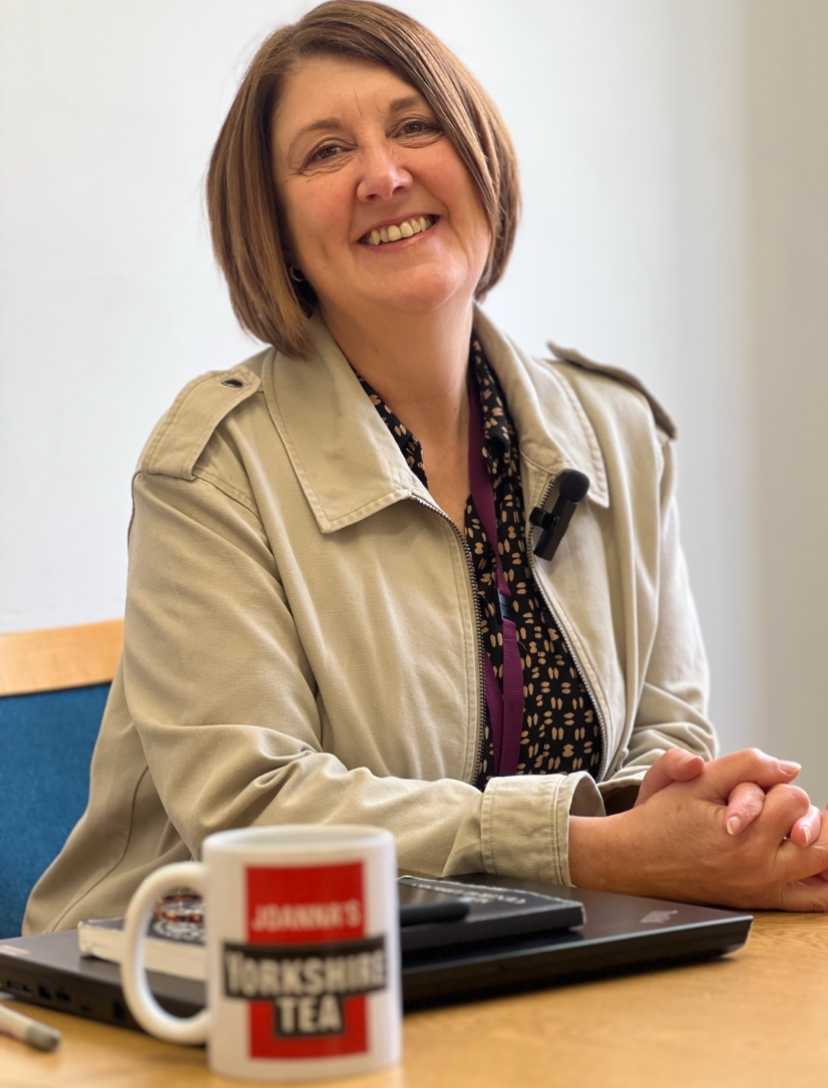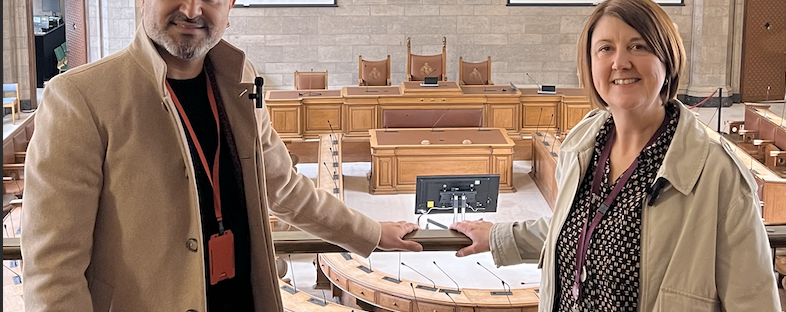Councillor Joanna Midgley shares view for Manchester’s future
- Featured image credit: Faraz Arian
In an interview with NQ, Councillor Joanna Midgley addressed some of the most pressing issues facing Manchester. From transparency in council decisions to the housing crisis and concerns over public safety, she shared her perspective on challenges she sees in the city, as well as the path forward.
Transparency and public trust
Councillor Midgley acknowledged the perception that council decisions are often made ‘behind closed doors’, but maintained that public input is valued.
“We do try and involve the public in some ways, wherever we can,” she said. “For example, the budget we set recently underwent a statutory consultation, allowing residents to share their feedback. We acknowledged that feedback and acted on some of the priorities people highlighted.”
She emphasised the importance of local engagement, explaining that councillors work closely with their communities: “In my ward, one of the big issues is road safety. We’ve secured funding to address this because that’s what people told us they wanted.”
While transparency remains a challenge, Midgley pointed to initiatives like Making Manchester Fair as steps toward building public trust. “This program is about addressing systemic racism and health inequalities by giving communities more influence,” she said.
“People need to feel they have a say in decisions affecting their neighbourhoods.”

Housing crisis: facing the challenge
Discussing Manchester’s housing crisis, Cllr Midgley was frank about the scope of the problem. “Success would mean that everyone has a safe, secure home that is affordable,” she said. “A home is the foundation for everything else — education, employment, and good health all depend on it.”
She placed much of the blame on national policies, criticising the lack of social housing investment over the past 15 years. “The previous government slashed funding for council homes. Their ideology favoured private housing, and councils like ours were left without the resources to build at the scale we needed.”
However, she highlighted Manchester’s efforts to push back. “We’ve launched initiatives like Project 500, which is about providing land to housing associations to build genuinely affordable homes. These will be rented at social housing rates — the lowest possible rents.”
While she admitted that 500 homes were ‘a drop in the ocean’, she welcomed the Government’s recent commitment to expand social housing under deputy Labour leader Angela Rayner. “This is the kind of action we’ve been calling for. We need homes of all types, but affordable housing must be the priority.”
Homelessness: a persistent crisis
Cllr Midgley also addressed the city’s homelessness crisis, describing it as the result of a ‘perfect storm’ of systemic failures. “Homelessness was low at the end of the last Labour government in 2010,” she said. “But cuts to mental health services, addiction support, and the rise in private rents have made things dramatically worse.”
The council has worked to reduce rough sleeping and improve temporary accommodation options. “We’ve virtually eliminated the use of bed-and-breakfast accommodation for families. A few years ago, hundreds of people were stuck in those conditions. Now, we’re down to just around ten,” she said.
Still, the demand for temporary housing remains staggering. “We have about 2,700 households in temporary accommodation. Some families may wait up to five years for a permanent home. Until we have more social housing, it’s difficult to see that number falling.”
She also praised the upcoming ban on Section 21 ‘no-fault’ evictions. “This change will provide renters with more security and prevent sudden homelessness. It’s a long-overdue step.”

Crime and community safety
When it came to concerns about crime, Cllr Midgley acknowledged the anxieties of residents but pointed to ongoing improvements: “Crime rates vary across the city, and Greater Manchester Police have faced significant challenges in recent years. But I believe they are making progress.”
She stressed that reducing crime requires a broader strategy than just law enforcement. “It’s not just about policing — it’s about preventing young people from being pulled into crime in the first place. There’s a clear link between school absence and criminal activity. That’s why we’re working on keeping young people engaged in school and ensuring they have opportunities for the future.”
The Making Manchester Fair initiative is also part of the city’s crime prevention strategy. “We’re tackling the root causes of inequality. Jobs, training, mental health support — all of these factors play a role in making communities safer.”
Balancing loyalty and leadership
Reflecting on her leadership, Cllr Midgley shared an example of standing her ground in the face of political pressure. “A few years ago, there was a fatal accident on Princess Parkway. Residents were devastated and demanded action to make the road safer,” she recalled.
Despite opposition, she led a successful campaign to reduce the speed limit from 40 miles-per-hour to 30. “Some people weren’t happy about it. But I had to listen to my community. It wasn’t about politics; it was about doing what was right for the people I represent.”


